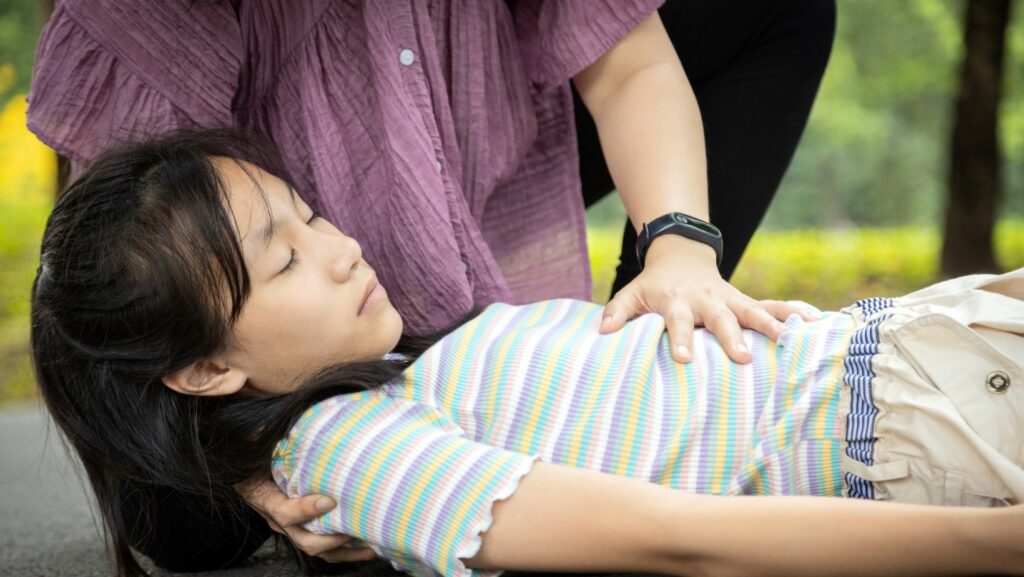
How can you know if your child is having a seizure? Every parent’s worst nightmare is seeing their child in distress, and when it comes to seizures, the fear can be overwhelming. Seizures in children can be a terrifying experience for both the child and their caregivers. While seizures can be caused by a variety of underlying conditions, it is crucial to understand the signs and symptoms to determine if your child is having a seizure or if there is another explanation for their behavior.
Recognizing Pediatric Seizures
Pediatric seizures can manifest in various ways, making it essential to be vigilant and knowledgeable about the signs. Common signs of seizures in children may include:
- Sudden Loss of Consciousness: One of the hallmark signs of a seizure is a sudden loss of consciousness or awareness. During this phase, a child may appear unresponsive or “out of it.”
- Jerking Movements: Many seizures involve jerking or twitching movements in different parts of the body. These movements can be rapid and uncontrolled.
- Staring Spells: Some seizures present as brief staring spells, where the child seems to be staring into space and is unresponsive to external stimuli.
- Behavioral Changes: Seizures can also cause behavioral changes, such as sudden confusion, fear, or aggressive behavior.
- Loss of Bladder or Bowel Control: In some cases, a child may lose control of their bladder or bowels during a seizure.
- Unusual Sensations: Children may describe unusual sensations before, during, or after a seizure, such as strange smells or tastes (Johns Hopkins Medicine).
It’s important to remember that not all seizures involve convulsions or visible movements. Some seizures may be subtle and easily mistaken for other behaviors or medical issues. Therefore, it’s crucial to consult a healthcare professional for a proper evaluation if you suspect your child has experienced a seizure. (John Hopkins Medicine)
The Diagnostic Process
Determining whether your child’s episode is indeed a seizure is a complex process that involves medical evaluation and testing. The diagnostic process typically includes the following steps:
- Medical History: The healthcare provider will begin by taking a detailed medical history, including information about the child’s episodes, family history of seizures or epilepsy, and any potential triggers or factors associated with the events.
- Physical Examination: A thorough physical examination will be conducted to assess the child’s overall health and neurological status.
- Electroencephalogram (EEG): An EEG is a critical test for diagnosing seizures. It records the electrical activity of the brain and can help identify abnormal patterns associated with epilepsy or other seizure disorders.
- Imaging Studies: In some cases, imaging studies such as MRI or CT scans may be ordered to rule out structural abnormalities or other underlying causes of seizures.
- Blood Tests: Blood tests may be performed to check for metabolic or genetic factors that could be contributing to the seizures.
- Video Monitoring: In certain situations, video monitoring in a hospital setting may be necessary to capture and analyze the child’s episodes more accurately.
The diagnostic process is essential to determine the underlying cause of the seizures and develop an appropriate treatment plan. It’s crucial to work closely with healthcare professionals to ensure a correct diagnosis and proper management of your child’s condition. (Epilepsy Foundation)
When Seizure is an Emergency
While most seizures are not life-threatening, some situations require immediate medical attention. According to the American College of Emergency Physicians, it is crucial to know when a seizure is an emergency. Call 911 or the local emergency number immediately if the seizure lasts longer than 5 minutes, they have difficulty breathing or turn blue, if the child sustains an injury during the seizure, if it’s the child’s first seizure, if the seizure occurs in water, the seizure associated with a high fever, or if there is prolonged confusion or unresponsiveness. (American College of Emergency Physicians).
Recognizing whether your child is having a seizure can be a daunting task, but understanding the signs, the diagnostic process, and when to seek emergency care is crucial for their well-being. If you suspect your child has experienced a seizure, don’t hesitate to consult with healthcare professionals who can provide a proper diagnosis and guidance on managing their condition. Your vigilance and knowledge can make a significant difference in ensuring your child’s health and safety.
Works Cited
“Seizures and Epilepsy in Children.” Johns Hopkins Medicine. https://www.hopkinsmedicine.org/health/conditions-and-diseases/epilepsy/seizures-and-epilepsy-in-children.
“Diagnosing Seizure in Children.” Epilepsy Foundation. https://www.epilepsy.com/parents-and-caregivers/kids/diagnosing-children.
“When Seizure is an Emergency.” American College of Emergency Physicians. https://www.emergencyphysicians.org/article/know-when-to-go/seizures#:~:text=Call%20911%20or%20the%20local%20emergency%20number%20immediately%20if%3A,seizure%20also%20has%20a%20fever.
